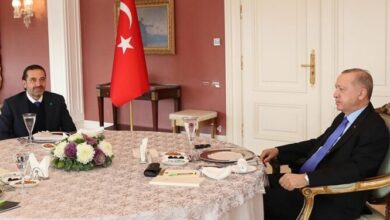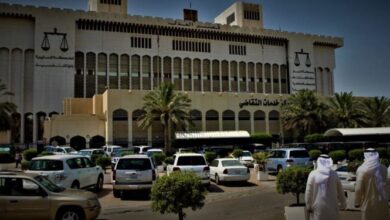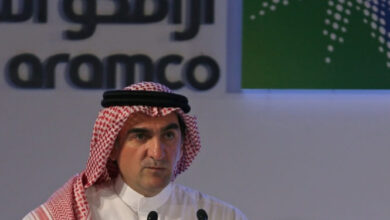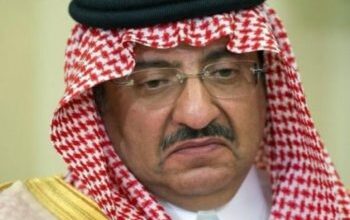MEE: Saudi’s influence becomes irrelevant in the region
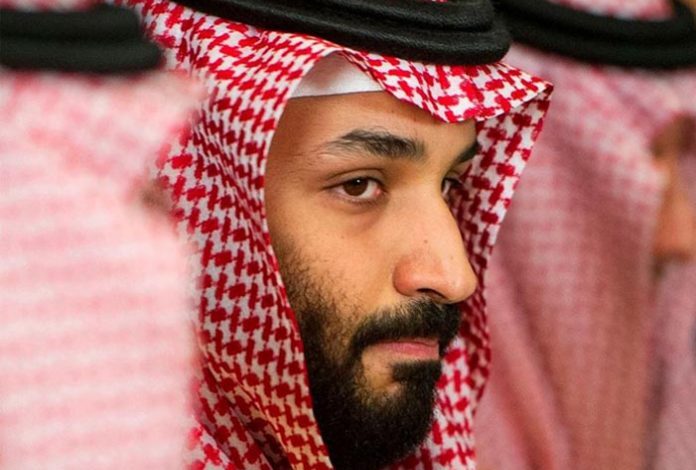
The Middle East Eye (MEE) said that Saudi Arabia had failed to reclaim the pivotal role it had been accustomed to before Crown Prince Mohammed bin Salman (MBS) came to power. 2021 brought a series of disappointments for Riyadh, alongside a realisation that it is no longer the sole power upon which its western allies rely to control the Arab and Muslim world.
The marginalisation of Saudi Arabia is bound to continue in 2022, with no indication that it will return to its pivotal role as a US client state that facilitates American interests in the region. Other smaller states have hijacked this role, namely the UAE and Qatar, and longtime US allies Israel, Morocco, Jordan and Egypt. It seems Riyadh has become irrelevant as the US disengages across the Middle East.
It seems the crown prince is no longer welcome in Washington or in any other international platform where the US has taken the lead.
Saudi-US relations have faced challenges since US President Joe Biden assumed office in January 2021. After he authorised the release of a classified CIA report on the murder of journalist Jamal Khashoggi and failed to act on its conclusions, Saudi Arabia breathed a sigh of relief. But the honeymoon was short-lived, shattered by the obvious US preference for selective engagement with MBS.
It seems the crown prince is no longer welcome in Washington, nor in any other international platform where the US has taken the lead. MBS failed to turn up at the recent G20 and COP26 meetings, as he wasn’t guaranteed a handshake or photo opportunity next to Biden and other world leaders. The Saudi crown prince was also not granted the honour of helping the US during the summer crisis in Afghanistan, as its military forces withdrew.
This does not necessarily mean MBS will be snubbed forever. The US continues to initiate selective engagement with Saudi Arabia, and as 2021 came to a close, the US wants to ensure that Saudi oil continues to flow in abundant quantity, lest oil prices continue to rise, thus undermining western economic recovery after two years of disruption fuelled by Covid-19 and low energy demands. The rise of the Omicron variant promises to make 2022 yet another year of uncertainty.
New crisis
Meanwhile, a new crisis has erupted between Saudi Arabia and the US, as the former is running out of ammunition to defend itself against drone and missile attacks from Yemen. A recent Wall Street Journal report found that its Patriot surface-to-air missile system provided by the US is in dangerously low supply.
The US Senate, by a vote of 67-30, last month defeated a resolution banning a proposed sale of 280 air-to-air missiles to the kingdom. Many of Washington’s supporters of arms sales to Saudi Arabia would prefer to continue to arm the country unconditionally, without a pledge to end the war in Yemen, which had been a priority for Biden.
Saudi Arabia will surely be exposed to further drone attacks by the Houthis, who have already tested their abilities to target Saudi oil fields and disrupt oil production. MBS desperately needs an end to this war, which has proven to be counterproductive and costly. His relationship with Biden will continue to be lukewarm in 2022.
The crown prince in Riyadh can count on both Russia and China to help rehabilitate him on the international scene – but they are no alternative to the old US-Saudi alliance. Russia’s interest in Riyadh centres on oil and a growing, but minor arms trade that cannot replace Washington’s role. Equally, China welcomes greater economic opportunities in Saudi Arabia, but it remains aloof politically and culturally.
MBS cannot suddenly pivot to the East, for many reasons. His military arsenal is western-based, and he still longs for a restoration of his country’s relations with the US that defined the Trump era. He could sit and wait in Riyadh for the next US election, which may bring a friendlier president to the White House.
Jared Kushner, former President Donald Trump’s son-in-law, turned his attention to Riyadh and other Gulf monarchs in an attempt to raise capital for his new investment fund. Only MBS responded favourably, while other Gulf emirs were reluctant to bet on Kushner and his financial deals. MBS is willing to use his public investment fund to secure his political future in Washington, should a friendly Republican president come to power in 2024.
Looking towards Europe
MBS could also turn his attention to Britain and Europe, both of which are opportunistic and willing to accommodate the crown prince without allowing his abysmal human rights record to derail future arms deals.
Britain maintains close ties with Riyadh, and the current Conservative government is not willing to undermine future opportunities in the name of upholding human rights. Britain will remain the second-largest supplier of arms to Saudi Arabia, as it has always been.
In France, President Emmanuel Macron already embraced the crown prince during a recent visit, as traders, arms salespeople and even intellectuals tried to charm the prince and secure financial opportunities. Macron was the first European leader to arrive in Riyadh since the murder of Khashoggi in 2018.
One of his main concerns was to solve the Saudi-Lebanese crisis in a way that would guarantee financial help for the failing Lebanese economy. It remains to be seen whether Macron will succeed, as the Saudi rift with Lebanon cannot be healed without reaching a modus vivendi with Iran, which backs Hezbollah, Saudi Arabia’s archenemy.
Other European leaders may be reluctant to embrace the Saudi crown prince, given how their constituencies view his record, and their parliaments may not be fully supportive of closer partnerships or new arms deals.
In 2022, all of Saudi Arabia’s international allies will face questions in their own countries should they attempt to fully turn the page on earlier intrigues and crimes. MBS may struggle to return Saudi Arabia to its previous glory, when it was the first nation to which the international community turned to solve the many problems confronting the Arab world.

